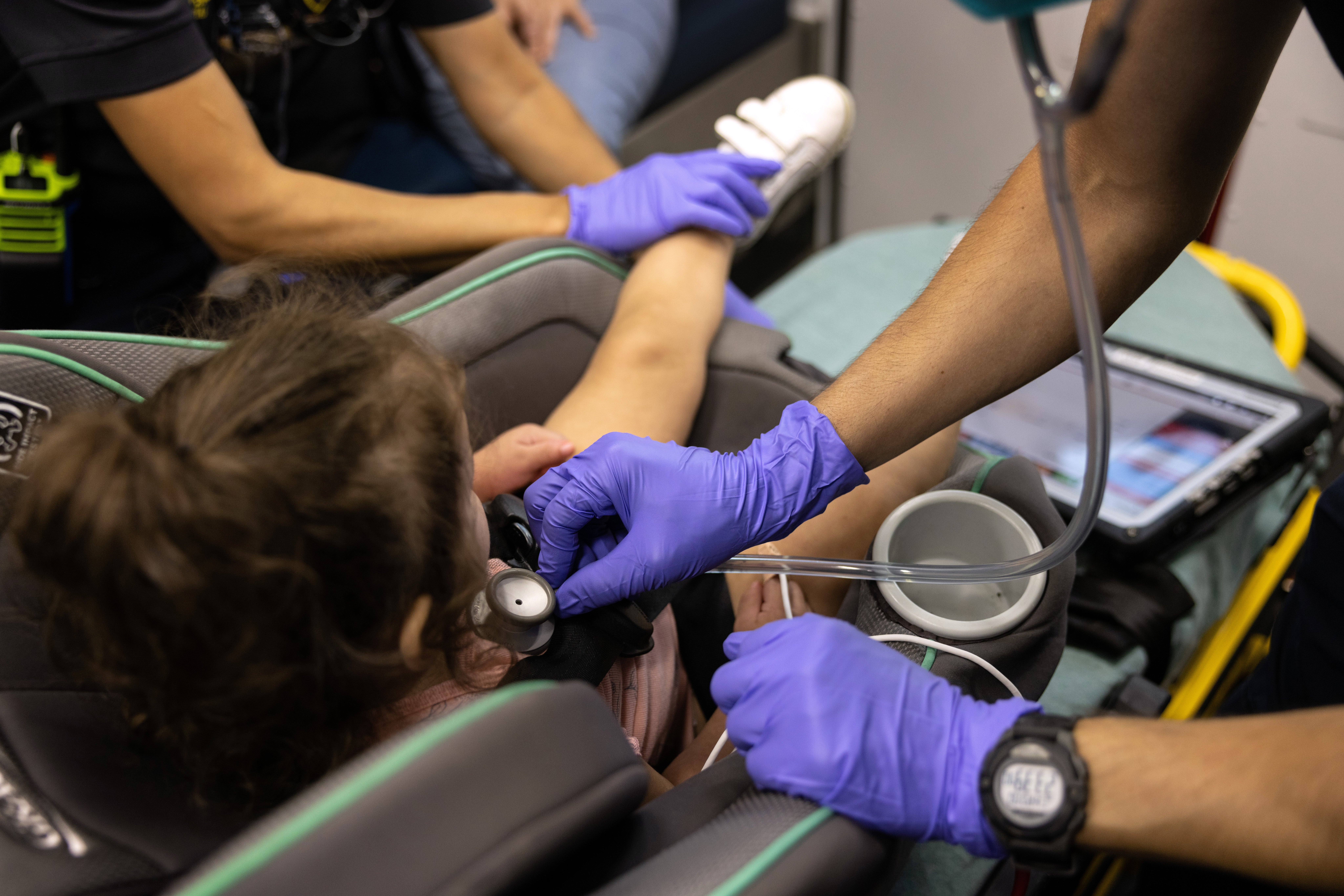Scientists stumped by ‘mini epidemic’ in child hepatitis cases
Officials in England and Scotland investigating more than 70 cases of liver inflammation among young children

Your support helps us to tell the story
From reproductive rights to climate change to Big Tech, The Independent is on the ground when the story is developing. Whether it's investigating the financials of Elon Musk's pro-Trump PAC or producing our latest documentary, 'The A Word', which shines a light on the American women fighting for reproductive rights, we know how important it is to parse out the facts from the messaging.
At such a critical moment in US history, we need reporters on the ground. Your donation allows us to keep sending journalists to speak to both sides of the story.
The Independent is trusted by Americans across the entire political spectrum. And unlike many other quality news outlets, we choose not to lock Americans out of our reporting and analysis with paywalls. We believe quality journalism should be available to everyone, paid for by those who can afford it.
Your support makes all the difference.Scientists have been left stumped by an “unusual” spike in hepatitis cases among young children in the UK.
In England, 60 cases in children aged under 10 are being investigated, the UK Health Security Agency (UKHSA) said. In Scotland, 11 children aged under five have been admitted to hospital with the inflammatory liver condition.
Symptoms include abdominal pain, nausea, yellowing of the eyes and skin (jaundice), and a high temperature.
Viral infections are typically associated with the disease, known as non-A-E hepatitis, but scientists are unsure what is driving the recent “mini-epidemic” seen in England and Scotland.
The children have been screened for the common classic viruses that cause hepatitis but these have not been detected. Health officials are investigating “possible links” to other diseases.
“Non-A-to-E hepatitis is a rare condition and there does seem to be a mini-epidemic/kick-up in the number of cases at the present time,” said Alastair Sutcliffe, a professor of general paediatrics at University College London.
He said there seemed to be no link to the Covid virus or vaccines. It’s understood that most affected children are too young to be eligible for vaccination.
“So what could be causing this? A random high is possible but seems unlikely,” said Prof Sutcliffe. “A consequence of the lockdown with sudden increased exposure to the causative agent in a non-immune population seems the most plausible explanation.”
Health managers in Scotland said the speed of its epidemic, the severity of cases and geographical spread made the outbreak “unusual”.
Cases have been diagnosed across the country, in regions including Lanarkshire, Tayside, Greater Glasgow & Clyde, and Fife. There are currently no clear causes and no obvious connection between them, Public Health Scotland (PHS) said.
Each year seven or eight cases of non-A-E hepatitis, without other underlying diagnoses, are detected in children in Scotland.
Dr Patricia Lalor, a senior investigator at the University of Birmingham’s Centre for Liver and Gastroenterology Research, said it was unusual to see these sort of cases in children under 10.
“So it’s something that’s caused liver damage. It could be a virus, it could be a toxic effect of a drug, it could be something else completely unrelated,” she said.
“It could be things like chicken pox, which can sometimes cause liver inflammation. It could be weird things like CMV [Cytomegalovirus], or other viruses.”
Dr Lalor also questioned whether the condition was linked to Covid, which reached record-high levels among under-11s last month, but suggested concerned parents may be giving too much paracetamol to their children to treat the symptoms of the virus.
“You don’t tend to see liver complications unless you get very significant Covid, in people who are admitted to hospital. So I think that would have been stated in the press releases if that was the case.
“But if you’re a parent with a young child that’s got a fever, is achy and snotty, you’d probably give them paracetamol, maybe to reduce their symptoms. And it may be possible that perhaps there’s a sort of paracetamol effect. Perhaps there are a few kids that have had a little bit too much paracetamol over time that has lead to inconsequential jaundice or liver injury.”
However, she did acknowledge that “there seems to be a hell of a lot of it [Covid] about at the moment” and that, given the high numbers, a tiny minority may be suffering rare consequences of infection. You do see elevations in liver enzymes in people who have Covid,” she added.
Dr Lalor said the rise in cases among young children was a mystery because “kids are pretty robust normally. You don’t see, I suspect, jaundice in lots of kids in this kind of way. So that’s odd.
“There’s no obvious connection between them as I can see based on the information that’s available to me, which suggests it’s not a weird cluster of food-borne virus or something like that. It’s surprising.”
Hepatitis usually resolves itself, but can become a chronic condition in 12 per cent of patients.
Dr Meera Chand, director of clinical and emerging infections at UKHSA, said the agency was working with its partners to raise awareness among healthcare professors and “help us to build a better picture of what may be causing the cases”.
Join our commenting forum
Join thought-provoking conversations, follow other Independent readers and see their replies
Comments